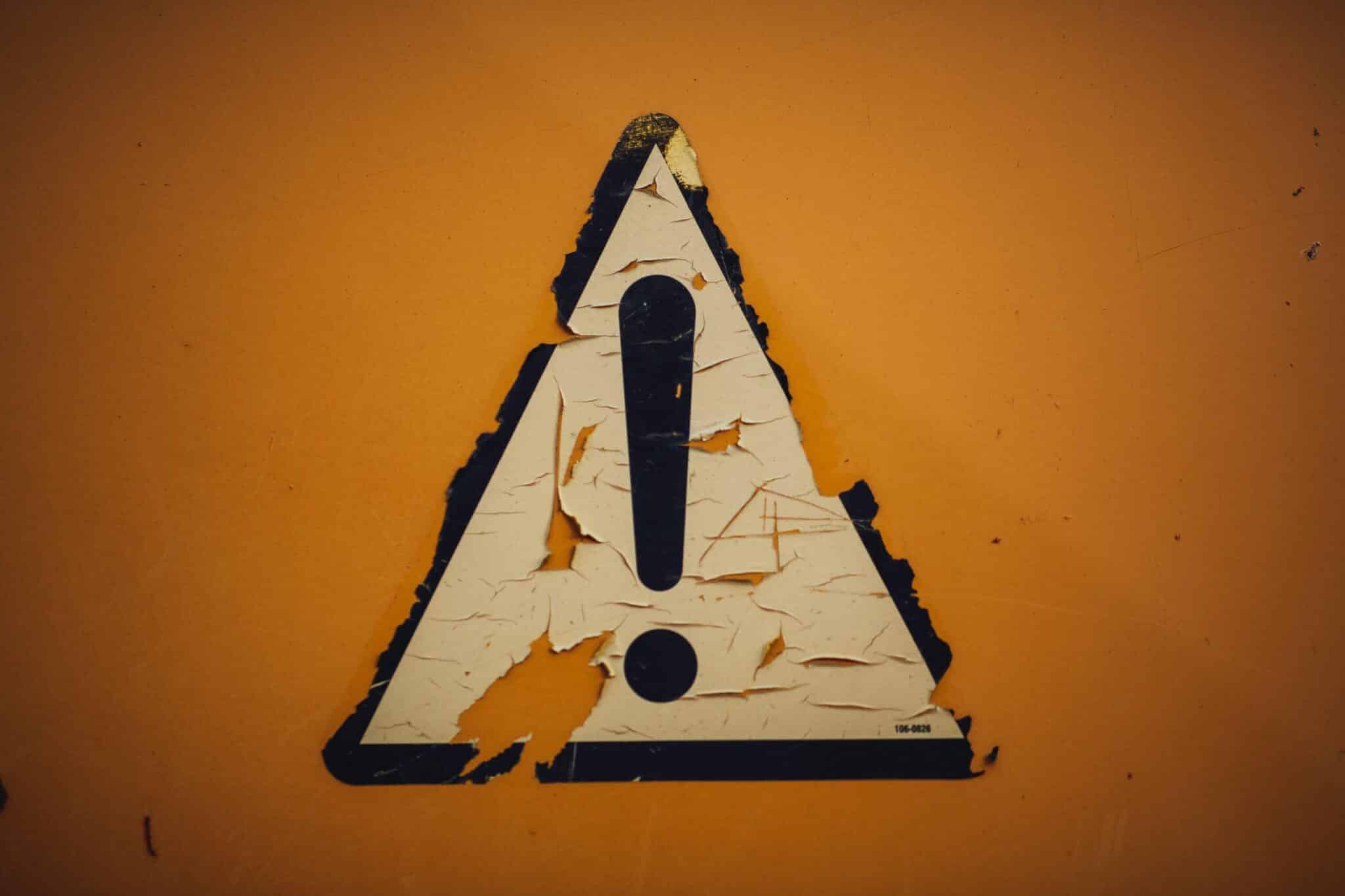Key Takeaways
- An example of a debt danger sign is maxing out your credit card, which indicates excessive debt and can damage your credit score.
- Other common warning signs of debt danger can include: missing bill payments, being denied credit, receiving calls from debt collectors, and having a high debt-to-income ratio.
- Poor credit can impact your life in a number of ways, including difficulty securing housing, job opportunities, or favorable loan terms due to a negative credit report.
- If you would like to get back on track, pay your bills on time, reduce your living expenses, avoid payday loans and cash advances, and consider strategies like debt consolidation to manage repayment.
Being good at managing your budget can save you from falling into the bad credit trap. But life is unpredictable, and there are some events that you, unfortunately, can’t stop. Those life events may influence your finances and force you into debt. Think you’re alone? The average American carries about $7,515 in credit card debt.1
Recognizing the signs of bad credit can help you. If you notice these warning signs now, you’ll be able to realize when you’re off the track so you can take action.
What Is Bad Credit, and Where Can I Check Mine?
Many people ask, “What is a bad credit score?” Before we move on to discussing the warning signs of having bad credit, here’s what banks and other lenders consider bad credit. We’ll also provide information on bad credit loans where you can check your credit score.
What Credit Score Is Considered Bad?
To better understand credit scores, you should know that the most commonly used credit score scale is the FICO scoring system.2 FICO scores are organized into 5 distinct credit ratings.
| FICO Score Range | Rating | Description |
| 300 – 579 | Very Poor | Lenders view borrowers in this range as very risky. Likely to face difficulty obtaining credit. |
| 580 – 669 | Fair | Below the average score of U.S. consumers. Some lenders may approve loans with this score. |
| 670 – 739 | Good | Most lenders consider this a good score. Borrowers are considered to be reliable. |
| 740 – 799 | Very Good | Borrowers in this range are likely to receive better-than-average rates from lenders. |
| 800 – 850 | Exceptional | Borrowers in this range are at the top of the credit score ladder and usually have no issue getting the best loan offers. |
For most lenders, a bad FICO score is anywhere between 300 to 579, which is referred to as “bad credit,” and 580 to 669, often called “subprime credit.”
Although it’s possible to get a loan with a thin file credit score, you may get less than ideal terms. If you want an answer to the question, “How much can I get in a personal loan with a 640 credit score?” know that the answer varies depending on the lender and the financial product you apply for.
On the other hand, if your credit score is between 621 and 740, it’s considered fair or good, while anything above 740 (to 850) is considered an excellent credit score. People with excellent credit scores generally get the best offers, the lowest interest rates, and the highest loan limits. For example, a good rate for a personal loan with a 700 credit score can help the borrower save money.
How Do I Check My Credit Score?
Every U.S. citizen has the right to have an insight into their credit report once every 12 months for free. All three of the major credit bureaus are required to provide a free report.
A borrower can submit a request for a credit report through any of the following methods:
- Over the phone by calling 1-877-322-8228 (TTY: 1-800-821-7232).
- Online by visiting the Annual Credit Report website.
- By filling out the Annual Credit Report request form and mailing it to: Annual Credit Report Request Service. PO Box 105281. Atlanta, GA 30348-5281.
Submitting an online request is the fastest way to get your credit report. You don’t need any complicated paperwork to get your report. You must simply provide some basic information, such as your name, address, and your Social Security number.
Access to your credit report is given almost immediately, and you can check all the important information about your financial history, from your credit score to the total amount of debt you may have.
11 Warning Signs of Too Much Debt
Your credit may have unexpectedly gotten worse, and you don’t even know it. Suddenly, you may notice that you need to get money fast today but are unable to secure online loans for basic needs. Why is this happening?
These are 11 warning signs that you may have too much debt and need to start prioritizing debt payments. If any of these apply to you, remember that you can fix a debt problem and develop better spending habits.
Warning Sign 1: You’re Fighting or Lying About Money
One of the first warning signs of debt problems is when you start fighting with your family about money. If you’ve also tried to hide your financial problems and started lying about how much money you spend or owe, it’s time to stop and face the debt problem head-on.
Warning Sign 2: You’re Not Adding to Your Savings Account
You know how many financial advisors recommend putting some money aside each month – some even say it should be 20% of your salary. You’re left penniless at the end of the month, and you can’t wait for your next payday, so you cannot add anything to your savings account, or at least your piggy bank.
The fact that you currently don’t have any debt should encourage you to leave a certain amount of money – you can start with smaller amounts and gradually raise the number until you reach the savings goal you’ve set.
Warning Sign 3: You Don’t Pay Your Bills on Time
Every now and then, you’re late with a payment. If you’re having trouble organizing your money and you spend the whole salary before you manage to pay all the bills, you may want to prioritize better. Your bills should come first, and entertainment and wants are covered by what’s left.
If you do pay your bills and debt installments first, and you still can’t afford to pay everything, you need to think of a way to increase your income or decrease your expenses.
Warning Sign 4: You Can’t Seem To Find a Job
Prospective employers are allowed to see your credit report, with some limitations, and take your financial history into account when deciding whether to give you the job. If your interviews are going great, the hiring managers seem to like you, but somehow they turn you down after you sign the permission for them to run a credit check, your bad credit may be the problem.
Some employers, especially if the job is related to the government or handling business finances, consider bad credit a deal-breaker, and they only hire candidates who have a stable credit history.
Warning Sign 5: Landlords Won’t Rent You an Apartment
Today’s landlords won’t take any risks with their tenants. When you want to rent a place, a landlord may also want to see your credit report first. They associate bad credit with the inability to cover your expenses, including the rent, so they don’t want problems. They’d rather move on to find someone with a spotless report.
Warning Sign 6: You Maxed Out Your Credit Card
Credit cards usually have limits, and it’s not a good idea to reach them or even come close. When you max out a credit card, you have too much debt and are not able to use it anymore unless you make credit card payments.
You can fix this situation by increasing your limit so your credit card isn’t maxed out anymore. However, the ideal solution would be to pay down your credit card debt as much as you can afford at the moment. It may also help to avoid making only minimum payments. Paying more than the minimum payment can help you pay down your debt quicker.
Warning Sign 7: You Don’t Keep Track of Your Finances
It’s not that unusual that we ask ourselves where all our money has gone. It’s the small expenses that sometimes affect our budget more than bigger debt payments, such as rent or mortgage. It’s easier to pay for something when it’s not much money, but these small payments tend to pile up.
You shouldn’t let this become a habit. Keeping track of your money and taking your time to plan your budget is the best thing you can do for yourself. You should also avoid borrowing small, high-cost loans when you need quick cash. For example, a payday loan may help you now, but that payday loan can quickly become a debt problem.
Warning Sign 8: You Get Unfavorable Credit Offers
When you have good credit, banks, credit unions, and alternative lenders consider you a creditworthy candidate and may offer you the best loan terms. But if your credit score is bad and your financial history is not very shiny, the lender will hesitate to offer you unsecured loans. Your interest rate will probably be higher, and you won’t be able to get the most money as someone with a 736 credit score.
Warning Sign 9: Your Debt-to-Income Ratio Is Too High
Your debt to income (DTI) ratio is a good sign of whether you have a debt problem. To find your DTI rate, all you need to do is to add up your monthly payments that are directed toward paying off the debt. The number you get is then divided by your gross monthly income.
For you to be able to cover your expenses and afford your debt repayment, the ratio shouldn’t be above 43%. The lower the percentage, the better and more likely are credit card companies to offer lower rates and higher credit limits.
If your DTI ratio is too high, you can consider taking these steps to resolve the debt problem:
- Increasing your income by taking on a second job.
- Decreasing your expenses where it’s possible.
- Increasing your minimum payment on monthly bills.
- Using a consolidation loan to make debt repayment easier.
Warning Sign 10: Your Credit Application Has Been Rejected
When you apply for a loan, your lender will check your credit before they make a final approval decision. Lenders usually don’t like risky candidates because they’re less likely to pay off the debt. That’s why they would rather approve a secured loan for you, but they may refuse to do that if your credit is so poor or if you already have too much debt on your plate.
Remember that loan rejections affect your credit score further, so you may want to wait until you improve your credit before applying for more installment loans or quick cash loans.
Warning Sign 11: Debt Collectors Have Started Calling You
If other signs weren’t alarming enough, this one is the definite wake-up call. Receiving a call from a debt collector means your minimum payments are not enough, and your debt is already way over the line. On top of that, talking to them over the phone is potentially dangerous if you’re not careful.
The best advice to resolve these debt problems is to continue communication with debt collectors via mail. Contact your lawyer and explain the situation to them – having professional help will probably be necessary to get you out of debt in a safe manner. They can give you valuable advice and help you make a plan for repaying credit card bills and other outstanding debt so you can start fresh with your finances.
FAQs on Debt Payments and Credit Scores
Taking multiple cash advances can lead to accumulating credit card debt at a faster rate. Cash advances often come with higher interest rates than regular purchases, and they might also have additional fees. Relying on cash advances frequently can be a warning sign of deeper financial
issues.
Debt consolidation involves combining multiple debts into a single loan, often with a lower interest rate. This can simplify your monthly debt payments, making it easier to manage and potentially saving you money in the long run. However, it’s essential to understand the terms and ensure it’s the right solution for your specific debt problems.
Making only the minimum payments can prolong your debt and result in paying a significant amount in interest over time. It can also be a warning sign that you’re struggling with managing your finances and might lead to more significant debt problems in the future.
Payday loans often come with extremely high-interest rates. Relying on them regularly can lead to a cycle of debt, where you’re constantly borrowing to pay off previous loans. This can exacerbate a debt problem and make it harder to achieve financial stability.
Being denied credit can be a sign that lenders view you as a high-risk borrower. It’s essential to review your credit report, understand the reasons for the denial, and work on improving your credit health. Consider seeking advice on managing debt problems and creating a plan to reduce your outstanding balances.
Some warning signs include frequently maxing out credit cards, relying on cash advances, struggling to make minimum payments, and being denied credit. If you notice these patterns, it’s crucial to address the issue before it escalates.
A cash advance allows you to withdraw cash directly from your credit card, often at an ATM. Unlike regular purchases, cash advances typically come with higher interest rates, immediate interest accrual, and additional fees. Regularly relying on them can be a red flag for potential debt problems.
A Word From CreditNinja About Having Too Much Debt
What is done is done, and you can’t change the past. But you can plan better for the future! Learn from your mistakes and create a plan to improve a bad credit score as soon as possible. For example, you can tackle your debt problem by making higher monthly debt payments. Paying more than the minimum can reduce the interest you pay and leave more money in your bank account. A higher credit score can also help you get a loan for surgery or another emergency right when you need it.
Want further information on what is considered bad credit? Learn more about increasing your credit and how to get a cash loan with bad credit through the CreditNinja online blog!
References:
- What Is the Average American Credit Card Debt? │ The Sacramento Bee
- Which Credit Score Do Mortgage Lenders Use? │ Time Magazine
- Learn about your credit report and how to get a copy │ USAGov
Matt Mayerle is a Chicago-based Content Manager and writer focused on personal finance topics like budgeting, credit, and the subprime loan industry. Matt has a degree in Public Relations and has been researching and writing about financial literacy and personal finance since 2015, and writing professionally since 2011.







